理学硕士-发展语言学
MSc Developmental Linguistics

学历文凭
Masters Degree (Taught)

专业院系
School of Philosophy, Psychology and Language Sciences

开学时间

课程时长

课程学费

国际学生入学条件
A UK 2:1 honours degree, or its international equivalent, preferably in linguistics, psychology or a related subject.
IDP—雅思考试联合主办方

雅思考试总分
7.0
- 雅思总分:7
- 托福网考总分:100
- 托福笔试总分:160
- 其他语言考试:PTE Academic: total 70 with at least 62 in each component.
CRICOS代码:
申请截止日期: 请与IDP联系 以获取详细信息。
课程简介
This programme will develop your understanding of how language knowledge is acquired and how it changes as people acquire or lose language at various points in their life. The programme places equal emphasis on first language acquisition, second language acquisition and bilingualism, making it an ideal choice for those who wish to have a broad knowledge in language development studies with a particular focus on empiricalexperimental research. Our skills-oriented training means graduates of the programme will be equipped with cutting-edge research skills in developmental linguistic and other related areas. Key research areas This programme will help you gain intellectual and practical skills to engage in developmental linguistics research, either for its own sake, or as part of cross-disciplinary research. This highly flexible MSc draws on the University of Edinburgh’s unparalleled research expertise in linguistics. Linguistics and English language at Edinburgh has access to a wide breadth of research themes, with the greatest theoretical depth that you will find anywhere. This programme gives you the flexibility to choose courses and research topics to suit your academic interests and goals. The department has multiple overlapping research groups, covering everything from meaning and grammar to language evolution. This programme is unique in allowing you freedom to draw on these resources. Linguistics & English Language is rated 3rd in the UK by Times Higher Education for the quality and breadth of the research using the latest Research Excellence Framework (REF 2021). What will I learn The programme offers knowledge and research skills in understanding how our linguistic competence changes as we acquire or lose language at various points in our lifespan. Joining a vibrant research community of developmental linguists, you will have the opportunity to carry out advanced research to try to answer questions related to the area of language development and bilingualism. Some of the central topics you will learn about are: How do children learn language How do adults learn a second language How do bilinguals accommodate two languages in their mind What happens when we forget a language You can also take advantage of the interdisciplinary department and draw on teaching and research both elsewhere in the School of Philosophy, Psychology and Language Sciences and within other relevant Schools. Is this MSc for me The programme is designed primarily for graduates with a background related to linguistics andor psychology who wish to develop their knowledge of current research on language acquisition - first, second, bilingual, and impaired. You will also look at language change from a cognitive perspective and from the point of view of current linguistic theories. You will benefit from the programme’s strengths in: Scope - which places equal emphasis on first and second language acquisition and bilingualism, making it an ideal choice for those looking to gain a broad knowledge in language development studies with focus on empiricalexperimental research Interdisciplinary teaching - allowing you to tailor your studies to your interests Skill-oriented training - through methodology courses, lab sessions and project work, you will be equipped with cutting-edge research skills Reputation, relevance and employability Edinburgh has a proud and distinguished place in the teaching in Linguistics and you will be taught by world-leading experts. Our Linguistics and English Language department is home to academics leading research into a wide range of topics.
相关申请
 预科
预科 奖学金
奖学金 实习机会
实习机会 在校学习
在校学习 跨境学习
跨境学习 校园授课-线上开始
校园授课-线上开始 在线/远程学习
在线/远程学习
开学时间&学费
学费信息仅供参考,请与IDP联系以获取详细信息
| 开学时间 | 时长 | 学费 | 地点 |
|---|
学校排名

世界排名29
数据源:
泰晤士高等教育世界大学排名
关于爱丁堡大学

爱丁堡大学(The University of Edinburgh),简称爱大,苏格兰之王,全球20强顶尖名校。位于英国苏格兰首府爱丁堡市,创建于1583年,是英语国家中第六古老的大学。《苏格兰启蒙运动》与《苏格兰大学发展研究》提到爱丁堡大学在18世纪曾超越牛津和剑桥而成为引领欧洲学术发展的第一大学。本杰明·富兰克林曾盛赞:“爱丁堡大学拥有许多真正的伟人和从事各种知识研究的教授,这在以往的任何时代、任何国家都从未有过。”爱丁堡大学产生过21名诺贝尔奖获得者、3位英国首相、4位总统和2位总理,并为罗素集团(The Russell Group)、科英布拉集团(The Coimbra Group)及欧洲研究型大学联盟(LERU)成员。达尔文、大卫·休谟、亚当·斯密、麦克斯韦、亚当·弗格森等诸多名家均曾在爱丁堡学习或从事研究。由于其悠久的历史、庞大的规模、卓越的教学质量与科研水平,爱丁堡大学在2015/16年QS世界大学排名中位居全球第21位;在2015/16年泰晤士高等教育世界大学排名中位居全球第24位,声誉排名全球第29位;在2015年维基百科世界大学影响力排名中位居全球第16位;2015/16 ARWU世界学术排名全球第47位。在英国官方每7年发布一次的2014REF英国大学研究排名中,高居全英第4位,仅次于牛津大学、伦敦大学学院和剑桥大学,是英国的超级精英大学。爱丁堡大学有一套严格的录取选拔机制,是英国大学中入学竞争最激烈、申请难度最高的大学之一,录取率仅为8%-10%左右。爱丁堡大学是英国最具规模的院校之一,以其出色而多样化的教学与研究而享誉世界。
本校相关课程
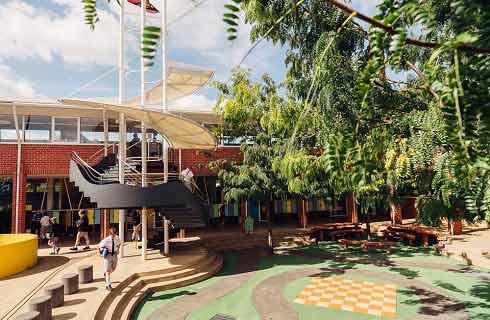
理学硕士-强度和调理
学历文凭
Masters Degree (Taught)
开学日期
课程费用总额

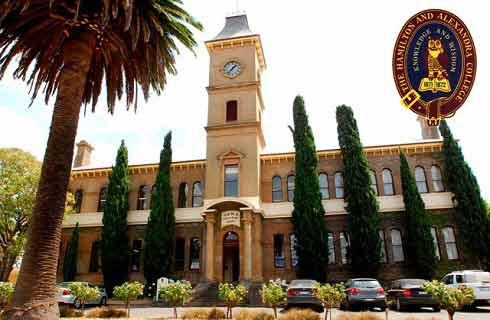
PgDip强度和调理
学历文凭
Graduate Diploma
开学日期
课程费用总额


PGDE-教育专业研究生文凭(小学)
学历文凭
Graduate Diploma
开学日期
课程费用总额


理学硕士-表现心理学
学历文凭
Masters Degree (Taught)
开学日期
课程费用总额

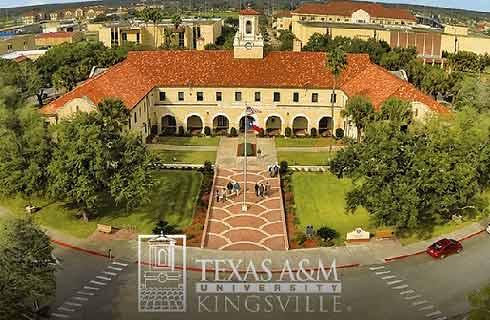
理学硕士-户外环境与可持续发展教育
学历文凭
Masters Degree (Taught)
开学日期
课程费用总额

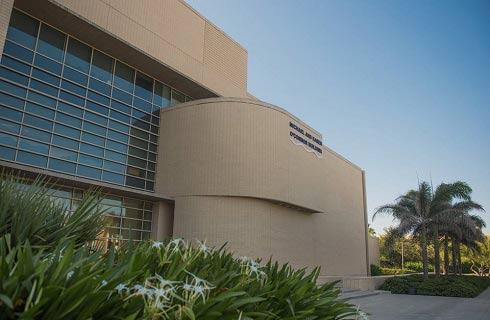
理学硕士-户外教育
学历文凭
Masters Degree (Taught)
开学日期
课程费用总额

其他相关课程

中学11年级和12年级
 马特·克里斯蒂学院
马特·克里斯蒂学院学历文凭
Secondary School
开学日期
课程费用总额


应用语言学硕士-应用语言学
 昆士兰大学
昆士兰大学泰晤士高等教育世界大学排名:80
学历文凭
Masters Degree (Coursework)
开学日期
课程费用总额

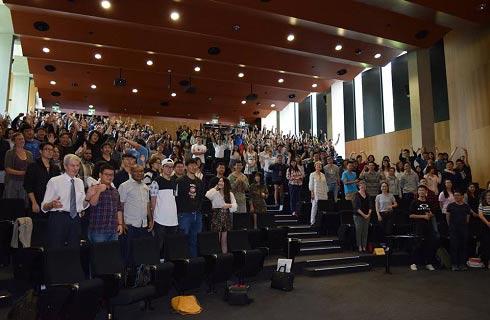
国际研究学士-中文
 昆士兰大学
昆士兰大学泰晤士高等教育世界大学排名:80
学历文凭
Bachelor Degree
开学日期
课程费用总额


脑与精神科学研究生文凭
 悉尼大学
悉尼大学泰晤士高等教育世界大学排名:54
学历文凭
Graduate Diploma
开学日期
课程费用总额


脑与精神科学研究生证书
 悉尼大学
悉尼大学泰晤士高等教育世界大学排名:54
学历文凭
Graduate Certificate
开学日期
课程费用总额


脑与精神科学硕士
 悉尼大学
悉尼大学泰晤士高等教育世界大学排名:54
学历文凭
Masters Degree (Coursework)
开学日期
课程费用总额










 英国
英国